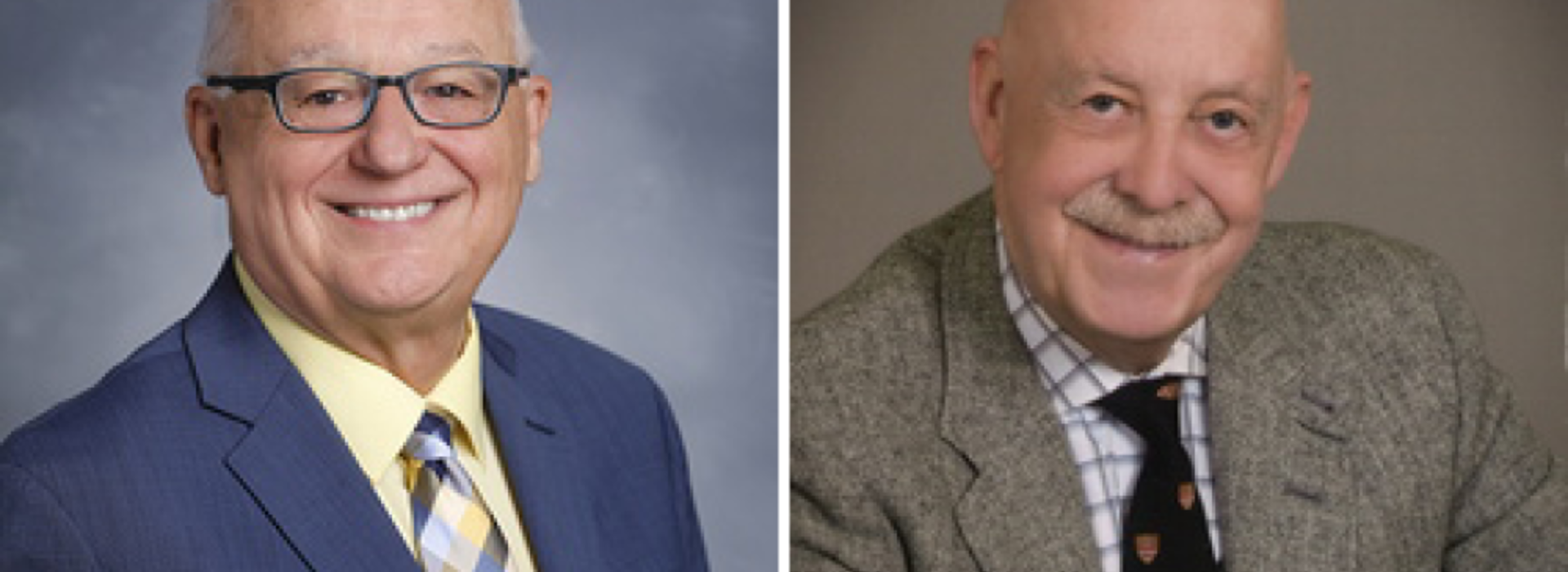
Research Validates the Importance of Medical School Curriculum on Sexual Health
Medical students spend countless hours learning the intricacies of the body and human behavior, but many medical schools do not offer sexual health education as mandatory curriculum, even though it is generally considered an integral part of medical and allied healthcare professional training.
Two professors in the University of Minnesota Medical School’s Department of Family Medicine and Community Health, Eli Coleman, PhD, the director of the Program in Human Sexuality, and Michael Ross, MD, PhD, DSc, the retiring Joycelyn Elders Chair in Sexual Health Education, recently published research demonstrating the importance of sexual health coursework and skills training for medical students.
“Generally, one of the cinderellas in medical school is teaching about human sexuality. Even now, just a bit more than half of all medical schools in the United States have a stand alone human sexuality course. It’s really important to justify its position in medical school coursework because there is a lot of competition for time,” Dr. Ross said.
The Medical School already maintains one of the most comprehensive courses in human sexuality, so the researchers did an exhaustive analysis of students before and after they took the course to determine their knowledge, skills and personal attitudes. To do this analysis, they needed to develop standards of measurement. Unfortunately, previously developed research tools were built in the late 1960s, leaving them outdated in regards to many societal views.
“We decided to work on a scale that had two advantages. First, it was updated. Second, instead of asking general questions about what people felt they had knowledge and skills in, we listed a number of clinical situations, like seeing a patient who is visiting for erectile dysfunction or contraceptive care. Now, we can actually go through the scale and find out where people have been educated and where they haven't, rather than just their general feelings about human sexuality,” Dr. Ross said.
Drs. Ross and Coleman used the Sexual Health Education for Professionals Scale (SHEPS), which was designed with appropriate psychometric standardization for such evaluation. In addition, they are making the scale available for public use in hopes that others continue to build upon their findings. Improving accessibility to education about sexual health is important, but it still needs to be done correctly. Their research publication provides the overall rationale, while also delivering a new tool that will help others evaluate their school’s curriculum.
“Most of the research that has been done lately is really documenting the lack of curriculum. There’s been a long period when no one was reallying evaluating it, and this is one of the first studies in a long time. It’s important as curriculum is being changed that there’s an empirical basis for why and how it can be implemented effectively,” Dr. Coleman said.
One of the main reasons that courses in human sexuality have diminished over time is that “faculty champions” throughout the country have either retired or died, with no one continuing their efforts after they’re gone. The Medical School hopes to avoid this as Dr. Ross edges closer to retirement. Through the establishment of the Joycelyn Elders Endowed Chair in Sexual Health, the Program in Human Sexuality was able to hire Kristen Mark, PhD, as the new chair to insure that this important work continues.
As coursework becomes more sparse, students often turn to other sources to bridge the knowledge gap. In some instances, medical students and student medical associations have taken the problem into their own hands by developing online courses in human sexuality, but this shouldn’t need to happen if the coursework is already integrated into medical school curriculum. Also, since the advent of the internet, it’s no longer a question of accessibility, but rather a question of credibility. “The question is, ‘Do you want people to get sexual education that’s balanced from a true educator? Or, do you want them to get it from the internet and all that implies,” Dr. Ross said.
If medical schools continue to minimize these courses, then future healthcare workers will be at a disadvantage when they’re confronted with clinical dilemmas. This will only compound health issues and it could even worsen patient outcomes.
“We have a myriad of sexual health problems in this country, and this is really embarrassing when you look at other developed nations and even developing nations that are doing a better job in addressing these problems. Fundamental to addressing these issues is the training of healthcare professionals. This is just essential if we’re ever going to stem the tide,” Dr. Coleman said.
Dr. Ross reiterated a similar sentiment: “If anybody has emergent sexual problems, the first people they contact will be physicians and other healthcare professionals. Producing well-informed, highly professional and well-trained healthcare workers is the basis for everything that we do.”
The SHEPS scale and accompanying resources can be found through the Program in Human Sexuality’s website under the Joycelyn Elders Chair in Sexual Health Education.